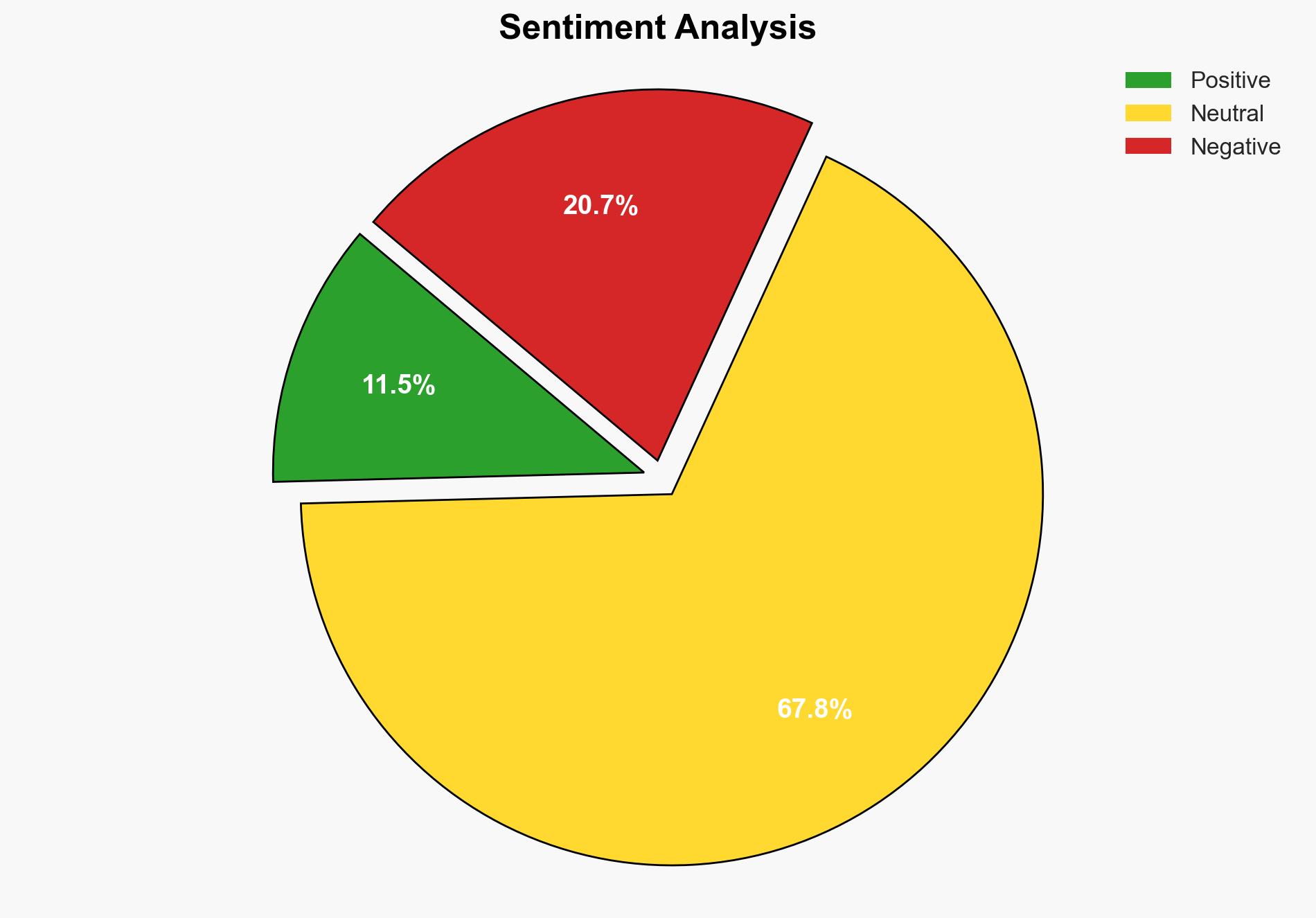As undersea cables break off Europe and Taiwan proving sabotage is hard – Al Jazeera English
Published on: 2025-03-10
Intelligence Report: As undersea cables break off Europe and Taiwan proving sabotage is hard – Al Jazeera English
1. BLUF (Bottom Line Up Front)
Recent incidents involving undersea cable disruptions in Europe and Taiwan highlight the complexities of proving sabotage. While officials point to potential involvement by China and Russia, legal challenges make prosecution difficult. The strategic importance of these cables, which carry a significant portion of global digital communication, underscores the need for enhanced surveillance and preventive measures. Recommendations include increasing monitoring efforts and developing international legal frameworks to address such threats.
2. Detailed Analysis
The following structured analytic techniques have been applied for this analysis:
Scenario Analysis
Multiple scenarios were considered, including accidental damage due to marine activities and deliberate sabotage by state or non-state actors. The involvement of China and Russia is suspected due to geopolitical tensions, but conclusive evidence remains elusive.
Key Assumptions Check
Assumptions regarding the resilience of undersea cable networks and the likelihood of state-sponsored sabotage were critically examined. The analysis challenges the assumption that all cable breaks are accidental, given the strategic implications of targeted disruptions.
Indicators Development
Indicators of potential threats include increased naval activity near critical cable routes, unexplained disruptions in communication networks, and geopolitical tensions involving key state actors. Monitoring these indicators can help in early threat detection.
3. Implications and Strategic Risks
The disruption of undersea cables poses significant risks to national security, regional stability, and economic interests. The reliance on these cables for global communication makes them prime targets for hybrid warfare. The inability to attribute responsibility with certainty complicates diplomatic and military responses.
4. Recommendations and Outlook
Recommendations:
- Enhance surveillance and monitoring of undersea cable routes, particularly in geopolitically sensitive regions.
- Develop international legal frameworks to address and prosecute acts of sabotage against critical infrastructure.
- Invest in technological advancements to improve the resilience and redundancy of undersea cable networks.
Outlook:
In the best-case scenario, increased international cooperation and technological advancements mitigate the risk of future disruptions. The worst-case scenario involves escalating geopolitical tensions leading to more frequent and severe cable sabotage incidents. The most likely outcome involves a continued pattern of sporadic disruptions with incremental improvements in detection and response capabilities.
5. Key Individuals and Entities
The report mentions significant individuals and organizations, including Ray Powell, Kevin Frazier, and Barbara Kelemen. These individuals provide expert insights into the challenges of proving and addressing undersea cable sabotage.




